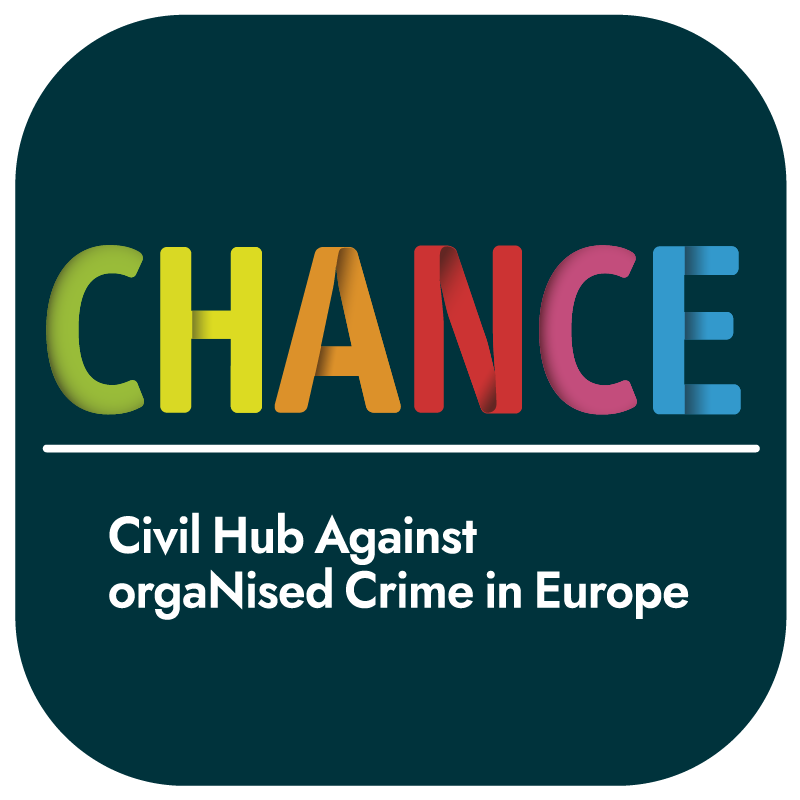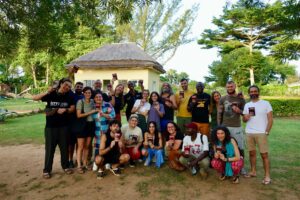The National Day of Memory and Commitment to Victims of the Mafias has reached its
twenty-seventh edition. During this time, a vast network of associations, schools, and social
organisations have been formed, and they are all committed to generating change, starting with
“us” at Libera.
A long road has been taken since the first edition on March 21st, 1995. Countless initiatives and
actions have been proposed and carried out: confiscated assets, memory, co-responsibility
education, training, support to victims and those who have chosen to escape the mafia realm, and education in schools and colleges, but those are not all of the pillars of the collective commitment that we have built up in this quarter of the century.
Recently, mafias have changed how they are acting, and in some ways, becoming more hidden,
but even more invasive and dangerous for our community and economy. Therefore, the actions
taken against the mafias and corruption have to be innovative and capable of understanding the
present’s complexity and historical roots, all while looking toward the free future that we want to
build.
The pandemic has generated new ways for the mafias to gain social and economic control, which have revealed a system with political and economic collisions.
March 21st is a day to gather, reflect, analyse, empathise, and stand beside mafia victims’
families so that we all can contribute to healing by creating a shared memory from these stories.
This day marks a new beginning for our commitment. It is a day to focus on the victim and his or
her basic right to know the truth. It is the victim and his or her family’s right, but also all of
ours. We are sure that there is a duty to the truth. The truth has a fundamental public value,
especially for a State that wants to call itself democratic.
Reading the victims’ names and spelling them carefully is a way to revive these men and women, boys and girls. It is a way of not letting those who fought openly against the mafias die, without giving threats or blackmailing that deviate from their professional and civil duty, but it is also a way of not forgetting those people who unfortunately found themselves in the path of a bullet, or who were victims of high explosives directed at others. There are so many stories of life, passions, sacrifices, love for the common good, and affirmation of denied rights and freedoms.
Taking charge of the victims’ stories represents exercising responsible and productive
memory. It is a commitment to restore dignity to their lives that were dramatically interrupted by
criminal violence and offer an opportunity to reflect on the presence of mafias and their constant
evolution in our territories. Keeping these stories alive, intertwining them in a plural narrative that constitutes a collective heritage, sheds light on stories from countries with injustice and crime, but also by many peoples’ and communities’ civil resistance to reaffirm their rights.
In the light of March 21st, we want to start study channels that connect to the stories of innocent
victims of the mafias so that their lives become an opportunity to rediscover the roots and potential outlook of our daily commitment to justice, the value of culture, and protection of the urban and natural environments in which we live.
The 2022 edition of the Day of Memory and Commitment to Victims of the Mafia will occur in
Naples, a city full of culture and hospitality, capable of responding to the criminal emergency with various kinds of social initiatives, a city that generates hope. However, repeating the “formula” adopted in recent years due to the emergency Naples will be the main place, with other initiatives being carried out simultaneously in hundreds of other locations in Italy, Europe, Africa, and Latin America. We aim to have an overwhelming amount of involvement in the entire area, with powerful international connections: it will be an opportunity for institutions and society to send a concrete signal of joint commitment against mafias and corruption.
March 21st, 2022’s slogan: “My Land. Cultivation and Culture”
Our slogan aims to unite two dimensions, both fundamental today, to restart. My land: caring for
our local community and reinterpreting our existence as global citizens, paying close attention to
where we live and our daily lives. Cultivation and Culture are two aspects that relate to the land
and our consciences. Two words that are differentiated by a singular vowel, (in Italian, they
translate to “Coltura and Cultura”), remind us that it is necessary to continue working parallelly and commit to feeding the Earth with the commitment to nourish our consciences. Starting with the encyclical “Laudato Sì”, the concept of integral ecology has become a focal point, a dimension that combines respect for the environment with fairer policies, capable of establishing the foundations for true inclusion among people to bridge the gap that still sees one part of the planet exploiting another. It is an approach that strengthens the exchange between nature, society, institutions, and the economy while building a unified plan of reflection and action that helps reverse the trend. The pandemic has made it even more evident that there is no time to lose, we must commit immediately to recover from the harmful results from the unconditional exploitation of natural resources, and the States must share a united commitment. However, it is necessary to have a culture shift to initiate this model, which is being provoked by youth environmental movements, but it is not everyone’s heritage. But this is not an exclusively environmental approach. Taking this path means reviewing the main relations of power, rethinking forms of abuse that are carried out daily in the environment to satisfy a consumption model that is no longer sustainable, defeating the territories and the workers that ratify destroying local peculiarities, which impoverishes. We know that at the root of the spread of mafia culture and practices, there is a necessity as well as corruption, the lack of freedom that allows imposition and submission. It is a violent system that affects many areas and that we can disarm, to recover sovereignty, prominence, and freedom. We must commit ourselves to thoroughly understanding all the forms of violence that occur daily to produce social responses that are capable of interrupting them and growing the roots of a culture of change, something that can no longer be postponed.






